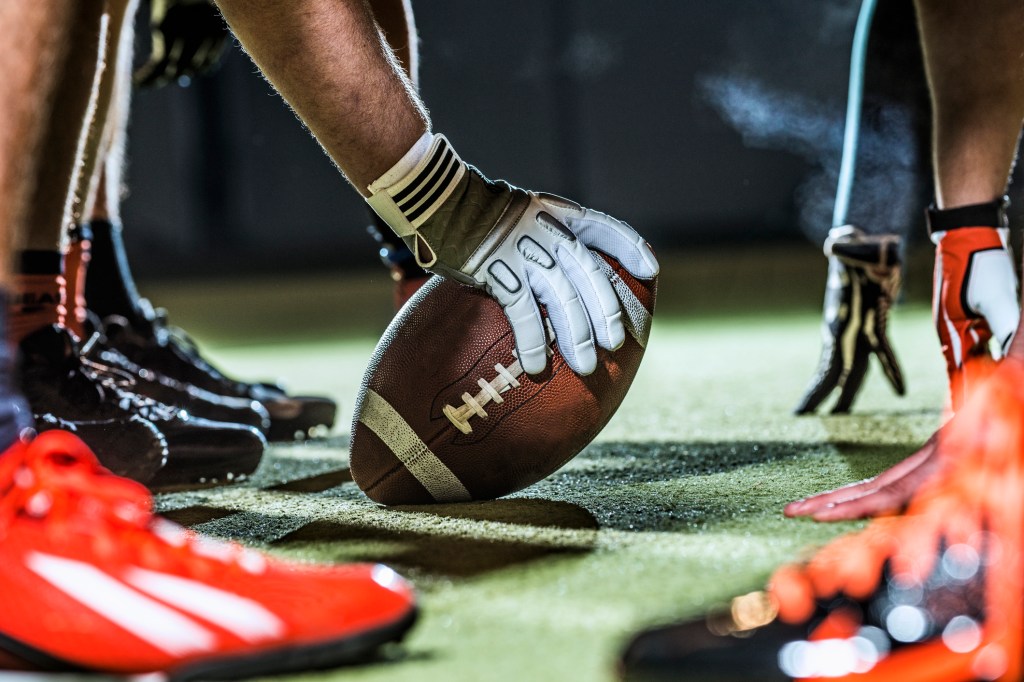Larry Alton
More posts from Larry Alton
There’s something about football that enamors America. While other countries go crazy for soccer — and baseball is technically “America’s Pastime” — there’s no debating the fact that football is this country’s sport of choice. From the thousands of small high schools spread across the nation to the $7.3 billion operation that is the National Football League, it’s clear that football is as much a cultural force as it is a sport.
Part of what makes football so appealing is the rare combination of art and violence. On the one hand, it takes incredible talent to kick a football through a goal post at 50-plus yards or to catch a football with one hand while being guarded by two other players. On the other hand, it’s gut wrenching to watch a 315-pound lineman take a quarterback down like a lion on a zebra.
It’s this latter portion of the game that draws viewers in, but has league officials worried. As you may know, the NFL is currently facing allegations related to concussions and brain damage. And, while the league’s rabid fan base isn’t going anywhere soon, commissioner Roger Goodell and his associates know that something must be done sooner rather than later.
There’s a lot going on behind the scenes of the concussion research issue. Some of it is good, and other parts are bad, but one tiny piece of technology has managed to fixate itself squarely in the middle: sensors.
Sensors and the NFL: Controversy brewing
In April 2015, the NFL reached a $900 million class action lawsuit settlement with thousands of former players based on the league’s alleged attempts to hide the risks of concussions in order to keep players on the field. Each of the 5,000-plus players in the lawsuit will be awarded as much as $5 million for medical conditions related to head trauma sustained while playing in the league.
With so much money being poured into this issue, the NFL has reached the conclusion that something must be done. So, during the 2014 offseason, it was reported that all 32 teams could be using concussion sensors by as early as the 2015 season.
“We’ve done a lot of validation work over the past 18 to 24 months using some of these devices,” Kevin Guskiewicz, a member of the NFL’s Head, Neck and Spine Committee, said back in June 2014. “It’s really important that we know what the information is telling us and how to interpret it and how we can provide meaningful data back to the player, the athletic trainer or the team physician, the strength and conditioning coach, whoever that may be.”
While little sound bites like these sound good, a new report from Outside the Lines reveals a slightly different picture of what’s been happening over the past few years.
When the NFL suspended the use of helmet sensors in February 2015, Guskiewicz told The New York Times, “There was not an agreement by some of the individuals, so we thought it was best to take a time out and see what systems work most reliably.”
His associates claimed that, with error rates in the 10-20 percent range, discrepancies in sensor results would ultimately have a negative impact on the league’s image. But the new report finds that the NFL’s study had “standards for accuracy that were unattainable.”
The growing role of sensors in football
All of this back and forth is nothing more than a footnote on the real issue: Moving forward, sensors can and will play a major role in the future of this beloved sport.
Here are a couple of ways in which sensors are being used:
Linx IAS sensors
While the NFL bickers about the role of sensors, the sport’s lower levels are taking action. BlackBox Biometrics has started using Linx IAS — its military shockwave sensor technology — to help high schools manage the severity of blows to the head.
“We saw a significant amount of attention being given to concussions in sports — driven by the NFL — and thought we could address the problem in the way we do for the military,” says David Borkholder, founder of BlackBox. Hundreds of these devices are now being trialed around the country.
The MotionWorks RFID system
It’s not just about concussions, though. Sensors also have the potential to amplify the football experience for coaches, athletes, and fans. During the 2014 season, the NFL tested Zebra Technologies’ MotionWorks RFID system in 18 stadiums. The system, which tracks player movements using small, embedded chips in a player’s shoulder pads, allows viewers to track a variety of metrics, such as speed and location.
The future of sensors in the NFL
As you can see, the role of sensors in the NFL is fragmented and controversial at the moment. The league recognizes the value of the technology, but selfishly wants to control the direction of it. You can argue the ethics behind the league’s choices to permit or avoid sensors, but you certainly can’t debate the fact that these tiny devices will play a role in the future progression of the league.






























Comment